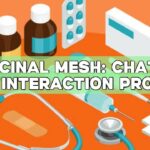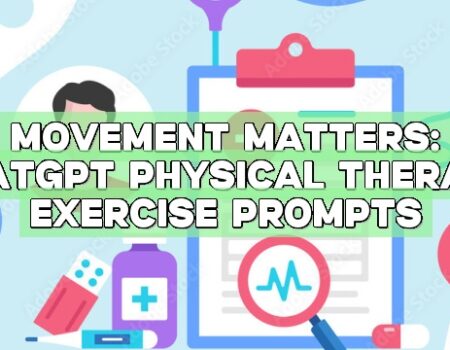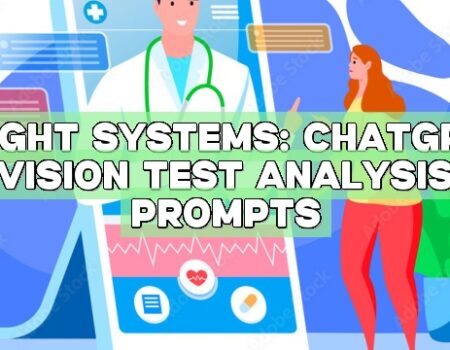ChatGPT, an AI-powered chatbot developed by OpenAI, has the potential to revolutionize the healthcare industry by providing personalized patient care summaries with the help of AI insights. In this article, we will explore how healthcare professionals can use ChatGPT to enhance patient care, medical documentation, and medical research.
Patient Communication
ChatGPT can assist healthcare professionals in effectively communicating with patients by generating explanations of medical conditions and treatments, addressing patient concerns and questions, and creating empathetic and supportive messages.
Medical Documentation
ChatGPT can aid healthcare professionals in medical documentation tasks by generating case summaries and progress notes, drafting referral letters and discharge summaries, and providing valuable information within the specified word limit.
Medical Research
ChatGPT can help in medical research by summarizing research articles and suggesting research topics related to specific medical conditions.
To optimize ChatGPT’s responses, it is important to craft clear and concise prompts, provide context and background information, and iterate and refine prompts for better results. Healthcare professionals must prioritize privacy and data security when using AI chatbots like ChatGPT in the healthcare industry.
Key Takeaways:
- ChatGPT can enhance patient care by providing personalized patient care summaries.
- ChatGPT can aid healthcare professionals in patient communication, medical documentation, and medical research.
- Clear and concise prompts and providing context can optimize ChatGPT’s responses.
- Privacy and data security must be prioritized when using AI chatbots like ChatGPT in the healthcare industry.
Patient Communication
ChatGPT can be a valuable tool for healthcare professionals when it comes to patient communication. It can assist in effectively explaining medical conditions, addressing patient concerns, and creating empathetic and supportive messages. Here are a few examples of how ChatGPT can aid in patient communication:
- Explaining medical conditions and treatments: ChatGPT can generate simple explanations of various medical conditions for newly diagnosed patients. It can also provide information on treatment options for different medical conditions.
- Addressing patient concerns and questions: ChatGPT can address patient concerns about side effects of medication, cost of treatment, and fear of medical procedures. It can provide reassurance, discuss financial assistance options, and offer information about the procedure to alleviate patient concerns.
- Creating empathetic and supportive messages: ChatGPT can generate empathetic and supportive messages for patients who have received serious medical diagnoses. It can also provide messages of encouragement for patients managing chronic conditions and messages to help patients stay motivated in their treatment plan.
By using ChatGPT prompts, healthcare professionals can improve patient communication and create a more positive patient experience.
Medical Documentation:
Efficient medical documentation is crucial for quality patient care, and ChatGPT can provide valuable assistance in this area.
ChatGPT can assist in creating various medical documentation tasks, such as:
| Task | How ChatGPT can help |
|---|---|
| Writing case summaries and patient histories | ChatGPT can assist in creating case summaries and patient histories for different medical conditions. It can provide concise summaries with the necessary details. |
| Drafting progress notes and treatment plans | ChatGPT can generate progress notes for patients undergoing treatment and develop treatment plans for specific medical conditions. It can provide important information within the specified word limit. |
| Creating referral letters and discharge summaries | ChatGPT can help in writing referral letters to specialists for patients with specific medical conditions. It can also generate discharge summaries and post-discharge care instructions for patients who have been treated for specific medical conditions. |
ChatGPT uses natural language processing and machine learning algorithms to generate accurate and relevant information for medical documentation tasks. With ChatGPT’s assistance, healthcare professionals can save time and ensure the accuracy of medical documentation.
It is important to craft effective prompts to get the most accurate and useful responses from ChatGPT. The prompts should be clear, concise, and specific. Providing context and background information is helpful to help ChatGPT understand the subject matter. Iterating and refining prompts can help healthcare professionals find the best approach for their individual needs.
Whether writing case summaries, drafting progress notes, creating referral letters or discharge summaries, ChatGPT can help streamline medical documentation tasks and ultimately lead to better patient care.
Medical Research:
ChatGPT can be a powerful tool for healthcare professionals engaged in medical research. It can assist with summarizing research articles and clinical trials related to specific medical conditions. ChatGPT can provide brief overviews and highlight the key findings from recent studies.
Moreover, ChatGPT can generate research topics related to medical conditions that healthcare professionals are interested in exploring. It can offer brief explanations of the significance of each topic, making it easier for healthcare professionals to select the topics that are most relevant to their needs. AI insights are valuable for medical research. With ChatGPT, healthcare professionals can streamline their research process, save time, and gain valuable insights.
Crafting Effective Prompts
In order to get the most accurate and useful responses from ChatGPT, it is important to craft clear and concise prompts. Specificity is key, clearly stating expectations and requirements for the chatbot’s response. Open-ended questions are encouraged to elicit thoughtful and comprehensive answers. It is important to provide context and background information to help ChatGPT understand the subject matter and deliver more accurate responses. Additionally, iterating and refining prompts is suggested to find the best approach for individual needs.
These guidelines can help healthcare professionals optimize ChatGPT’s responses. Prompt clarity is the foundation for getting accurate and actionable insights from ChatGPT. Specific prompts that clearly state what kind of information is being sought will assist the chatbot in offering more precise and helpful responses.
Open-ended questions are powerful tools for gathering nuanced information from patients. By allowing for unstructured responses, healthcare professionals can learn about their patients’ experiences and concerns on a deeper level. ChatGPT can leverage these open-ended questions to generate thoughtful and comprehensive answers to complex medical questions.
Context and background information are essential components of crafting effective prompts. ChatGPT can provide more accurate responses when it has a clear understanding of the patient’s medical history, treatment preferences, and other relevant factors. This can help healthcare professionals offer more personalized and effective care to each patient they encounter.
Iterating and refining prompts is an ongoing process that can help healthcare professionals optimize their use of ChatGPT. By continually reviewing prompts and adjusting them based on the chatbot’s responses, healthcare professionals can identify patterns and improve the quality of their interaction with ChatGPT over time.
Patient Privacy and Data Security
While utilizing AI chatbots like ChatGPT in healthcare, it is essential to prioritize patient privacy and data security. Protecting sensitive patient information is crucial in complying with regulations like HIPAA and maintaining patient confidentiality.
When using ChatGPT, it is important to ensure that any prompts or queries submitted to the chatbot do not contain PHI. Healthcare professionals must verify that any third-party chatbot provider is complying with HIPAA or similar data protection regulations to prevent potential breaches of patient privacy.
AI chatbots like ChatGPT have the potential to streamline healthcare practices and improve patient outcomes. However, it is important to exercise caution when handling sensitive patient information.
Leveraging ChatGPT for Better Patient Outcomes
By harnessing the capabilities of ChatGPT, healthcare professionals can save time, increase efficiency, and deliver better patient outcomes. ChatGPT can assist in various aspects of patient care, medical documentation, and medical research. The prompts available in each section can help healthcare professionals communicate effectively with patients, create effective medical documentation, and conduct valuable medical research.
ChatGPT can also generate personalized patient care summaries through AI insights, ensuring that patients receive more effective treatments based on their unique needs. These personalized insights are invaluable in providing better patient outcomes.
By using ChatGPT, healthcare professionals can focus on providing quality care to their patients, rather than spending time on administrative tasks. This frees up more time for healthcare professionals to focus on providing personalized care, increasing their efficiency and improving patient outcomes.
However, it is important to prioritize patient privacy and data security when using AI chatbots like ChatGPT in the healthcare industry. Compliance with regulations like HIPAA is crucial to prevent potential privacy breaches.
Ultimately, ChatGPT has the potential to transform healthcare practices by providing valuable insights and recommendations. With the appropriate prompts, healthcare professionals can optimize the usage of ChatGPT and improve patient outcomes.
Tips for Optimizing ChatGPT Usage
To make the most of ChatGPT’s capabilities, it is recommended to follow certain best practices and implementation tips:
- Craft clear and concise prompts: Ensure prompts are specific, stating expectations and requirements for the chatbot’s response.
- Provide context and background information: Help ChatGPT understand the subject matter and deliver more accurate responses.
- Iterate and refine prompts: Test different approaches to find the best prompts that work for individual needs.
- Seek feedback: Continuously review and refine prompts based on feedback from patients and healthcare professionals.
By implementing these best practices, healthcare professionals can better leverage ChatGPT’s capabilities and deliver more effective patient care.
Conclusion
ChatGPT has the potential to revolutionize patient care by providing valuable insights, recommendations, and content to healthcare professionals. By leveraging its capabilities, healthcare professionals can save time, increase efficiency, and ultimately deliver better patient outcomes. However, the importance of patient privacy and data security cannot be overstated when using AI chatbots like ChatGPT in the healthcare industry. It is crucial to comply with regulations like HIPAA and maintain patient confidentiality. As the field of AI-powered patient care continues to evolve, we can expect further innovations and advancements that will transform healthcare practices even further.
Disclaimer on PHI Usage
It is important to prioritize patient privacy and comply with HIPAA or similar data protection regulations when utilizing AI chatbots in healthcare settings. As entering PHI (Protected Health Information) into ChatGPT may violate HIPAA regulations, it is crucial to verify the compliance of any third-party chatbot provider with HIPAA or similar data protection regulations. To avoid potential patient privacy breaches, it is recommended to refrain from including PHI in any prompts submitted to AI chatbots.
Future Developments in AI-Powered Patient Care
The future of patient care looks promising with ongoing advancements in AI technology and its potential applications in healthcare. As AI-powered chatbots like ChatGPT continue to become more advanced, their potential to transform patient care and medical research is limitless.
One potential future development in AI-powered patient care is the use of virtual assistants. By incorporating advanced natural language processing (NLP) and machine learning algorithms, virtual assistants could help patients with medication reminders, appointment scheduling, and answering medical questions. This technology could also enhance patient engagement and help healthcare professionals deliver personalized care.
Advancements in AI technology are also expected to enhance the accuracy and speed of medical diagnoses. AI algorithms can analyze large amounts of medical data, including patient records, medical images, and laboratory results, to detect patterns and make predictions. This technology could enable earlier detection of diseases and improved patient outcomes.
Another potential application of AI in patient care is the development of personalized treatment plans. AI algorithms can analyze large amounts of data to recommend the best treatment options for each patient based on their unique characteristics and medical history. This technology could help healthcare professionals develop more effective treatment plans and improve patient outcomes.
As AI technology continues to develop, there are endless possibilities for its application in patient care. From virtual assistants to personalized treatment plans, the future of AI-powered patient care looks bright.
Harnessing the Power of ChatGPT in Healthcare
Healthcare professionals can harness the power of ChatGPT to optimize their practices and deliver improved patient care. ChatGPT, an AI-powered chatbot developed by OpenAI, can assist in various aspects of patient care, medical documentation, and medical research. With the appropriate prompts, healthcare professionals can save time, increase efficiency, and deliver better patient outcomes.
However, it is crucial to prioritize patient privacy and security when using AI chatbots like ChatGPT in the healthcare industry. As entering PHI (Protected Health Information) into ChatGPT may violate HIPAA regulations, it is recommended to verify the compliance of any third-party chatbot provider with HIPAA or similar data protection regulations, to avoid potential patient privacy breaches.
To get the most accurate and useful responses from ChatGPT, it is important to craft clear and concise prompts. Specificity is key, clearly stating expectations and requirements for the chatbot’s response. Open-ended questions are encouraged to elicit thoughtful and comprehensive answers. It is crucial to provide context and background information to help ChatGPT understand the subject matter and deliver more accurate responses. Additionally, iterating and refining prompts is suggested to find the best approach for individual needs.
With these guidelines in mind, healthcare professionals can make the most of ChatGPT’s capabilities and enhance their practice. By exploring and embracing AI technology, healthcare professionals can pave the way for transformative results in the industry. As AI continues to advance, we can expect further developments in AI-powered patient care and healthcare innovation for generations to come.
FAQ
Q: What is ChatGPT?
A: ChatGPT is an AI-powered chatbot developed by OpenAI that provides valuable insights, recommendations, and content to healthcare professionals.
Q: How can ChatGPT assist in patient communication?
A: ChatGPT can explain medical conditions and treatments, address patient concerns and questions, and generate empathetic and supportive messages for patients.
Q: What medical documentation tasks can ChatGPT help with?
A: ChatGPT can assist in writing case summaries, drafting progress notes, creating referral letters, and generating discharge summaries.
Q: How can ChatGPT aid in medical research?
A: ChatGPT can summarize research articles and clinical trials, as well as generate ideas for research topics related to specific medical conditions.
Q: What are some tips for crafting effective prompts?
A: Clear and concise prompts, specificity, providing context and background information, and iterating and refining prompts are essential for optimal responses from ChatGPT.
Q: How should patient privacy and data security be ensured when using ChatGPT?
A: It is important to prioritize patient privacy and comply with regulations like HIPAA. Verify the compliance of any third-party chatbot provider before entering PHI into ChatGPT.
Q: How can ChatGPT help in delivering better patient outcomes?
A: ChatGPT can save time, increase efficiency, and provide valuable insights to healthcare professionals, leading to better patient outcomes.
Q: What are some tips for optimizing ChatGPT usage?
A: Iterating and refining prompts, seeking feedback, and implementing AI chatbots effectively are recommended for optimizing ChatGPT usage in healthcare.
Q: What is the importance of patient privacy and data security?
A: Patient privacy and data security are crucial for maintaining confidentiality and complying with regulations, ensuring the trust and safety of patients.
Q: What is PHI and how should it be handled in ChatGPT?
A: PHI (Protected Health Information) should not be entered into ChatGPT, as it may violate HIPAA regulations. Verify the compliance of any chatbot provider with HIPAA or similar data protection regulations.
Q: What is the future of AI-powered patient care?
A: The future holds potential advancements in AI technology that can further revolutionize patient care and healthcare practices, driving innovation in the field.
Q: How can healthcare professionals harness the power of ChatGPT?
A: By embracing AI technology like ChatGPT, healthcare professionals can optimize practices, save time, and provide better patient care.









